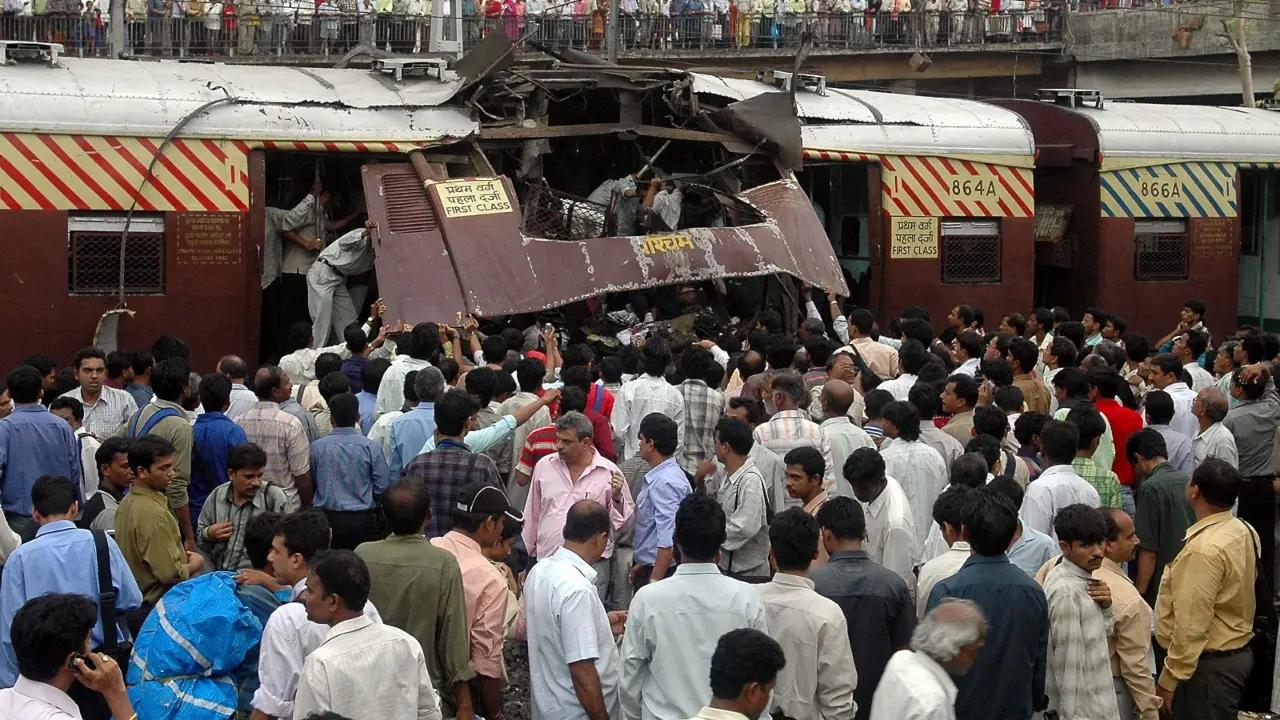While the tragedy is well documented, there are some lesser-known facts about the 2006 Mumbai train bombings

The attack targeted Mumbai's western suburban railway line. Pic/mid-day archives
The 2006 Mumbai train bombings left an unforgettable left profound impact on the city, upending its foundation and changing the lives of countless people 18 years ago, on July 11, a string of bomb blasts commonly known as 7/11 ripped through Mumbai's local train in the evening rush hour. It nearly killed 200 people in the financial capital in merely 11 minutes. These tragic events brought Mumbai to a standstill.
ADVERTISEMENT
While remembering 2006 Mumbai train bombing, sends a chill down people's spines. Here's what transpired on that fateful day:
1. A series of seven coordinated bomb blasts occurred on the suburban railway network in Mumbai. These explosions occurred within a span of just 11 minutes during the evening rush hour, between 6:24 pm and 6:35 pm.
2. The perpetrators used pressure cookers as improvised explosive devices (IEDs). These pressure cookers were packed with explosives, shrapnel, and timers and placed in the first-class compartments of local trains. Pressure cookers were used in the bombing to increase the afterburn in a thermobaric reaction, which made them more powerful than conventional high-explosives.
3. The bombings specifically targeted the western line of Mumbai's suburban railway system. The blasts occurred at various stations along this line, affecting the daily commuters who rely heavily on the local trains for transportation. The seven targeted stations were Matunga Road, Mahim Junction, Bandra, Khar Road, Jogeshwari, Bhayandar, and Borivali.
4. One of the bombs exploded in a train compartment at Borivali station. Another unexploded bomb was discovered by the police at the same station and successfully defused.
5. The attacks had economic repercussions for Mumbai. The vibrant business city and financial hub experienced a temporary setback as offices, shops, and businesses were affected by the aftermath of the attacks. The tourism industry also suffered a decline in the immediate aftermath due to safety concerns.
6. On July 14, 2006, the terrorist organization Lashkar-e-Qahhar claimed responsibility for the bombings. Later, in 2009, Sadiq Sheikh, a leader of the Indian Mujahideen, confessed his role in the bombing.
7. Just one week after the incident, on July 18, former president Abdul Kalam led a memorial service at Mahim station.
8. Several films, including 'Mumbai Meri Jaan', 'Wednesday' and 'The Train', were made in response to the Mumbai bombings, reflecting the impact of this tragic event on popular culture.
 Subscribe today by clicking the link and stay updated with the latest news!" Click here!
Subscribe today by clicking the link and stay updated with the latest news!" Click here!







